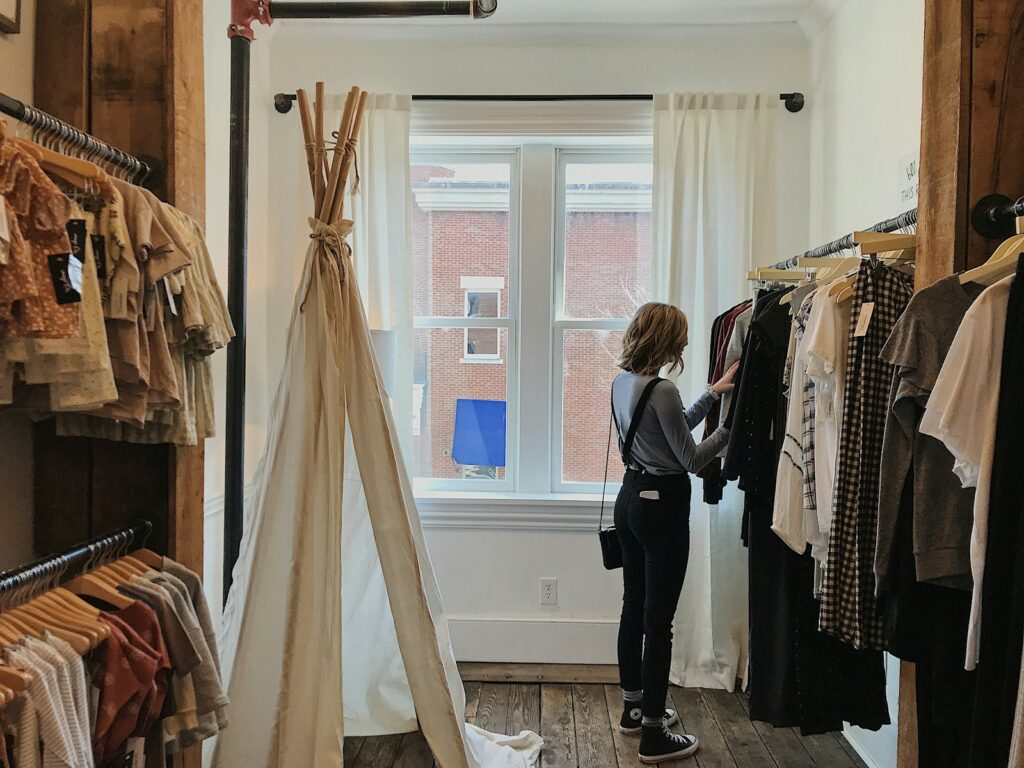Introduction
The fashion industry, renowned for its creativity and innovation, has a less glamorous side: And this it has done while negatively affecting the environment and its employee relations or lack thereof non-too-saintly. Fashion being one of the most emerging sectors, a new generation of concerned consumers is now concerned with sustainability, humane labor practices, and sustainability of the environment. This article defines an ethical fashion advocate, outlines key principles to adopt, and suggests ways to contribute to this change.
What is Ethical Fashion?
Understanding Ethical Fashion
Sustainable fashion, thus, refers to the social and environmentally conscious process of creating, sourcing, marketing, and consuming clothes and textiles. The fashion industry is something that is being questioned by a new concept that adheres to the principles of sustainability, the rights and fair treatment of employees, and eco-friendliness.
Core Principles of Ethical Fashion
The following principles seem fundamental to building a more ethical fashion industry:
- Sustainability: Ethical fashion aims for sustainable material use during production and creating processes that are eco-friendly. This includes the procurement of organic or recycled materials, avoidance of any wastage through efforts such as upcycling, and designing for durability.
- Fair Labor: Activists for ethical fashion promote equal and decent remuneration for workers and refrain from exploiting them, squalid and inhumane treatment of workers, and denying them basic employee rights. This stands in contrast with the more questionable labor relations that have been associated with individuals operating in the fast fashion industry.
- Transparency: Ethical brands have some levels of clarity so that customers can understand where the products come from, how they are made, and what kind of businesses the producers have.
- Animal Welfare: Non-something, means to steer clear from animal products and opt for animal-free or vegan products, which is one principle of ethical fashion.
The Impact of Fast Fashion
Environmental Consequences
Fast fashion with its cheap product, mass production, and short life cycle takes a great toll on the environment. The industry is one of the highest contributors to pollution, especially those textile facilities that emit high levels of greenhouse gases and chemicals.
Labor Exploitation
Consumerism that is characteristic of fast fashion brands involves using cheap labor from the developing world, slave wages, and hazardous working conditions. The consumerist race towards ‘cheap’ clothing results in exploitation and violation of human rights. This innovation means the rise of ethical fashion advocates.
The Rise of Ethical Fashion Advocates

Prominent Figures and Organizations
- The Notable People and NGO’s
Such attestation owes its credit to notable advocates in the field of ethical fashion and supporting organizations. - Notable Advocates
Stella McCartney: McCartney’s brand has been one of the first in the industry to address the issues of sustainable fashion doing away with products tested on animals, and recourse to sustainable materials.
Fashion Revolution: This global movement aims to make consumers ask brands “Who made my clothes?” and ensure that everyone that all clothing brands are accountable.
Grassroots Movements
Locally focused pressure groups are major agents of change that campaign for ethical fashion. Such approaches often involve promoting circular use through initiatives like shared wardrobes, clothes mending, and purchases from local eco-friendly designers.
How to Be an Ethical Fashion Advocate
In ergo, How to Be an Ethical Fashion Advocate
Making Conscious Choices
In this way, it can be seen that consumers facing fashion products are in the position of having the change fashion industry.
There are various guidelines one should use while consuming ethical fashion.
Research Brands: When there is such an opportunity, it is always good to choose brands whose manufacturers are friendly to the environment as well as the employees used to produce those brands.
Buy Less, Choose Well: Consequently, consumers should concentrate on quality, not quantity – this is the so-called information overload. Select garments whose requisites will not become dated anytime soon.
Second-Hand Shopping: There are numerous options that retailers take the opportunity to save used clothes from the streets such as thrift stores consignment shops and online markets for second-hand wear.
Support Local: Purchasing from local artists and local brands will not only help the local economy but also will help to minimize the effect on the environment and the emission of greenhouse gases associated with importation.
Care for Your Clothes: The benefits of proper care are that garments may be used for longer, cutting down on how often replacement is needed.
The Future of Ethical Fashion

Ethical fashion today is in an embryonic state but many believe that it is the future of our global fashion economy.
- Innovations and Trends
It is future optimistic as more technology and changes continue to shape the fashion culture to be more ethical. - Technological Advances
Sustainable Materials: New ideas of materials such as lab-grown leather, mushroom leather, and recycled fibers have emerged as the creation of environmentally friendly is ongoing.
Circular Fashion: This idea emphasizes that products are made within a cycle that ensures that they are reused, recycled, or allowed to degrade naturally thus decreasing waste greatly. - Consumer Influence
This is due to the ever-rising demand for ethical fashion that has made it hard for many brands to ignore the practices. That is nice, I think every time I get to make a decision regarding consumer products, I make sure that the company has adopted a fair and environmentally friendly approach.
FAQs on Ethical Fashion Advocate
What is ethical fashion?
Ethical fashion focuses on making various changes to the fashion industry to improve the status of workers, benefit consumers, and protect the environment.
Ethical fashion therefore can be defined as the fashion industry that is conscious of people and the planet and is involved in the process of designing, manufacturing and even using the garments. OE emphasizes sustainability, equality, and social justice in the labor processes and openness.
What is the way I could follow ethical fashion?
Some of the ways through which one can make a positive impact include ensuring that one researches the brands that one is purchasing from and ensures that such brands have embraced ethical conduct, purchasing clothes that are second-hand, supporting local troupes and artists, and ensuring that one takes good care of the items of clothing to avoid the need for frequent purchase of new items of clothing.
Who are some good ethical fashion brands?
Some of the examples of ethical fashion brands are; Stella McCartney Company Ltd, Patagonia Inc, and Eileen Fisher Inc. It is very important for these brands as they all aim to have sustainable and fairly produced products.
Why is fast fashion harmful?
While some perceive fast fashion as beneficial, its negative impacts on society overshadow these advantages.
Fast fashion is unhealthy for people and the earth because it is extremely unhealthy for workers through sweatshops to procure cheap materials which harm the earth through pollution as well as giving people a bad attitude of consuming more clothes in a very short time.
What is circular fashion?
Circular fashion is a concept of using clothing products, not just in a linear, but in a cyclical way.
Sustainable fashion strategies are the practices that are followed to create clothing that can be used again and again, can be recycled, or can be biodegraded. The concept in question is to provide radical revisions to the fashion industry that is ripe with waste.
Conclusion
Fashion activism is not a fleeting concern that will soon fade as some people may suppose; it is humanity’s transition to a fairer, environmentally friendly fashion industry. Everyone can thus choose attentively, favor ethical brands, denounce speechlessness; and build a fashion with, for, and of people and the planet. Ethical fashion is still in its development phase, offering hope for the generation of stylish fashion without environmental impact.
